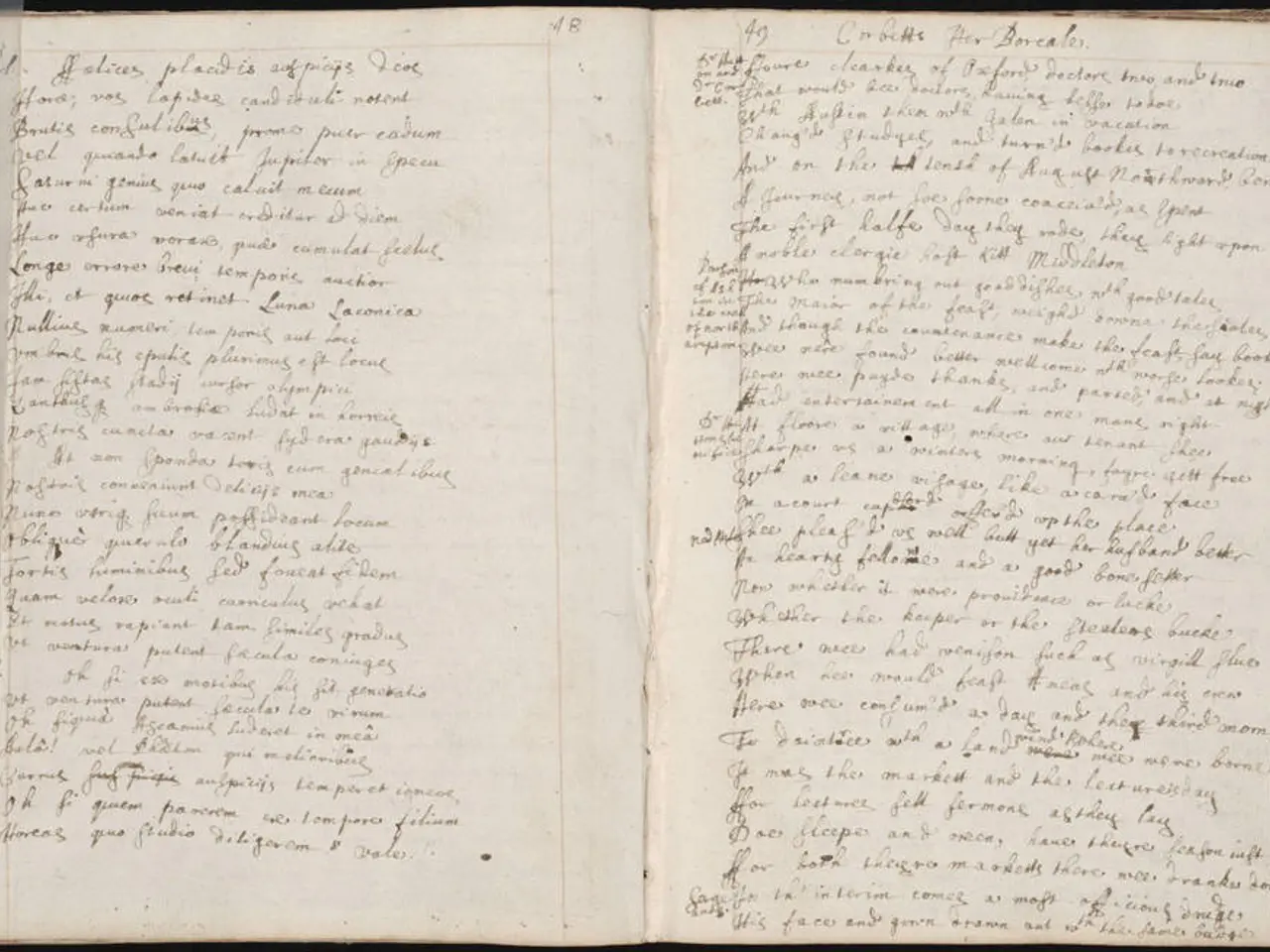Preparing for Examinations by Gathering and Reviewing Reading Materials
In the midst of the bustling academic season, books continue to play a crucial role in college students' lives, particularly during reading period and finals. This article offers practical strategies for digesting and analyzing long books effectively, helping you excel in research papers and exams.
Firstly, read thoroughly and actively. Rather than skimming through the text, immerse yourself in the entire book, using chapter titles or subheadings as guides. This active reading approach allows you to fully grasp the structure and content of the book [1].
Secondly, identify main ideas and themes. Pinpoint the key concepts, main characters, important events, and overall purpose of the book. Focus on narrative arcs or sequence of arguments to distill the essence of the content [1][3].
Thirdly, summarize strategically. Write concise summaries that include only the core information—main points, essential characters, or critical events—leaving out unnecessary details. Summaries should be much shorter than the original text and reflect the original meaning accurately [1][5].
Fourthly, create outlines or visualize information. Develop key point outlines or use visuals like charts or mind maps to organize and connect concepts logically, making recall and review easier before exams or writing [3].
Fifthly, use AI and digital tools when available. Employ AI-powered summarization tools to condense long texts into key points and highlight important phrases automatically. These tools can speed up literature review and help you grasp critical ideas faster, which you can then paraphrase thoughtfully with proper citation [2][4].
Lastly, paraphrase and cite properly. When incorporating summarized ideas into research papers, use your own words to avoid plagiarism and provide clear citations according to academic standards [5].
Remember, a book can be thought of as a sustained set of arguments advancing one or more propositions. To gain a more well-rounded understanding of a book, consider its broader artistic or scholarly conversation, such as its intended audience, the author's field, and the historical context. The structure of a book, including its chapters, order, and subheadings, can help in understanding the author's message.
As you prepare for finals, consider adopting the Quick and Dirty Blueprinting method for last-minute preparation. This strategy involves creating a concise outline of the key points, reviewing it frequently, and testing your knowledge through practice questions [6].
Shanon FitzGerald, the Social Sciences Correspondent, recently wrote a research paper about Walker Percy's book "Lost in the Cosmos: The Last Self Help Book." This satirical self-help book covers topics like depression, relationships, and the search for extraterrestrial intelligence. Reflecting on one's performance in the first midterm can help improve results in the final.
In conclusion, combining thorough reading with strategic summarization, active organization of information, and supplementary AI tools can lead to efficient extraction and analysis of valuable content from long books for academic use.
Engage with online-education platforms for additional learning resources related to your coursework, such as summary videos, study guides, or interactive quizzes [2].
Pursue lifelong education-and-self-development opportunities by expanding your reading materials beyond your required textbooks, engrossing yourself in novels, essays, or online articles on various subjects [7].




